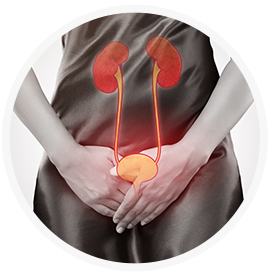
- Disclaimer / Privacy
© 2024 All Rights Reserved.
Danbury Office
51-53 Kenosia Avenue
Danbury, CT 06810
203.748.0330
Southbury Office – Temporarily Closed
22 Old Waterbury Rd.
Southbury, CT 06488
203.748.0330

A urogynecologist or female pelvic medicine and reconstructive surgery physician is a surgeon who can provide women comprehensive management of pelvic floor disorders, including urinary incontinence, fecal incontinence, lower urinary tract disorders, pelvic organ prolapse, pelvic floor dysfunction, and childbirth-related injuries
Disorders of the pelvic floor can occur when the pelvic floor muscles are weakened or injured. This can be related to genetics, tobacco use, excessive strain due to repeated strenuous activity, childbirth, changes related to menopause, prior surgeries or some chronic illnesses.
Organs like the bladder, uterus, vagina and rectum reside in the pelvis. The pelvic floor is composed of a group of muscles that serve as the foundation. These muscles act as the support structure and work to keep everything in place within your body. Your pelvic floor muscles add support to several of your organs and vagina by wrapping around your pelvic bone. Some of these muscles add more stability by forming a sling around the rectum or urethra.
The pelvic organs include:
For more information on these you can visit this website:
https://www.voicesforpfd.org or https://www.yourpelvicfloor.org/leaflets/